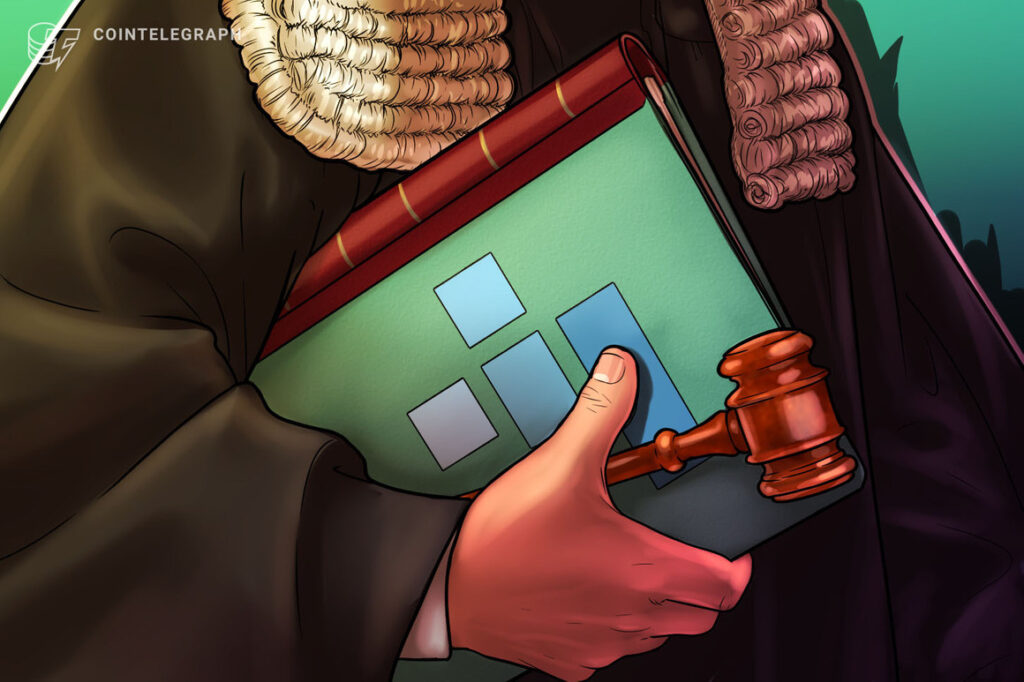FTX alleges former exec used ‘hush money’ to silence whistleblowers

FTX has filed a lawsuit against a former regulatory and compliance executive at the exchange, alleging he made a series of payments attempting to prevent staff from blowing the whistle about the exchange’s issues.
On June 27, FTX filed a lawsuit against Daniel Friedberg who held multiple roles including chief regulatory officer at FTX, chief compliance officer of FTX US and general counsel at Alameda Research.
FTX claims Friedberg was a “fixer” for the exchange’s co-founder Sam Bankman-Fried — whose father urged for Friedberg to be given a major role, as per the complaint:
“Joe Bankman, Bankman-Fried’s father, urged Bankman-Fried and others to give Friedberg a central role and to keep Friedberg ‘in the loop…so we have one person on top of everything.’”
Friedberg allegedly made “hush money” payments to two potential whistleblowers to stop them from leaking information about “regulatory issues” and the alleged close ties between FTX and Alameda.
In one alleged incident, Friedberg retained the attorney of a whistleblower after he paid them “thereby buying or otherwise ensuring their silence,” the suit reads.
In the 40-page filing, FTX unleashed 11 civil charges that, among other claims, alleged Friedberg breached his legal duties and approved a series of fraudulent transfers and “loans” to other former FTX execs.
According to the suit, Friedberg’s 22-month stint at the exchange saw him given a $300,000 salary, a signing bonus of $1.4 million, a separate $3 million cash bonus, an 8% equity in FTX US and crypto “worth tens of millions” — all of which FTX is seeking to claw back.
Some parts of the complaint, especially those pertaining to the amounts the whistleblowers were paid, are redacted.
In one alleged March 2022 incident, Friedberg gave an “extraordinary settlement” to a female FTX US employee named “Whistleblower-1” who worked “for less than two months” at the United States-based exchange on a $200,000 salary.
FTX also alleged he initiated a $12 million deal to retain Whistleblower-1’s attorney after the settlement.
The settlement was in response to a demand letter from Whistleblower-1 claiming “Alameda [was] nothing more than an extension of FTX, used to bolster investor confidence in FTX projects, and in turn drive up the prices of projects FTX had developed or invested in itself,” according to the suit.

The former employee also claimed “details regarding company fundraising and various projects were disclosed openly” on Slack which they claimed allowed “all employees present to make trades on the information prior to public announcements.”
Friedberg allegedly contacted the law firm for Whistleblower-1 after the settlement and signed an agreement that saw the firm retained for “more than $200,000 per month for five years,” even though there was “no genuine need” for the services, the suit claimed.
In another alleged instance, Friedberg reportedly fired an attorney working for Alameda dubbed “Whistleblower-2” after they “became concerned about governance and regulatory issues” within the business.
The person worked at Alameda for less than three months, FTX claimed, but they still received a severance package — which was redacted in the filing.
Related: Realtor may have accepted $3M for SBF-linked house in Washington DC
A June 26 report by FTX restructuring chief John Ray alleged an unnamed senior attorney “facilitated and covered up” the comingling of customer funds.
The same day, The Wall Street Journal reported the unnamed attorney was Daniel Friedberg, citing people familiar with the matter.
Friedberg was also named as a person who gave information to investigators with the U.S. Attorney’s office.
Additionally, a class action lawsuit against celebrities who allegedly promoted FTX also said Friedberg provided evidence that potentially rebuts key defenses made by some of the defendants.
Friedberg could not be immediately contacted for comment.
Magazine: $3.4B of Bitcoin in a popcorn tin — The Silk Road hacker’s story
Update (June 28, 4:50 am UTC): This article has been updated with further information from the filing.
















